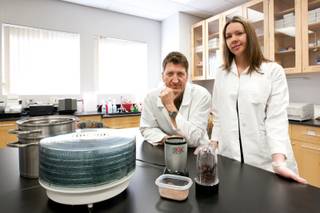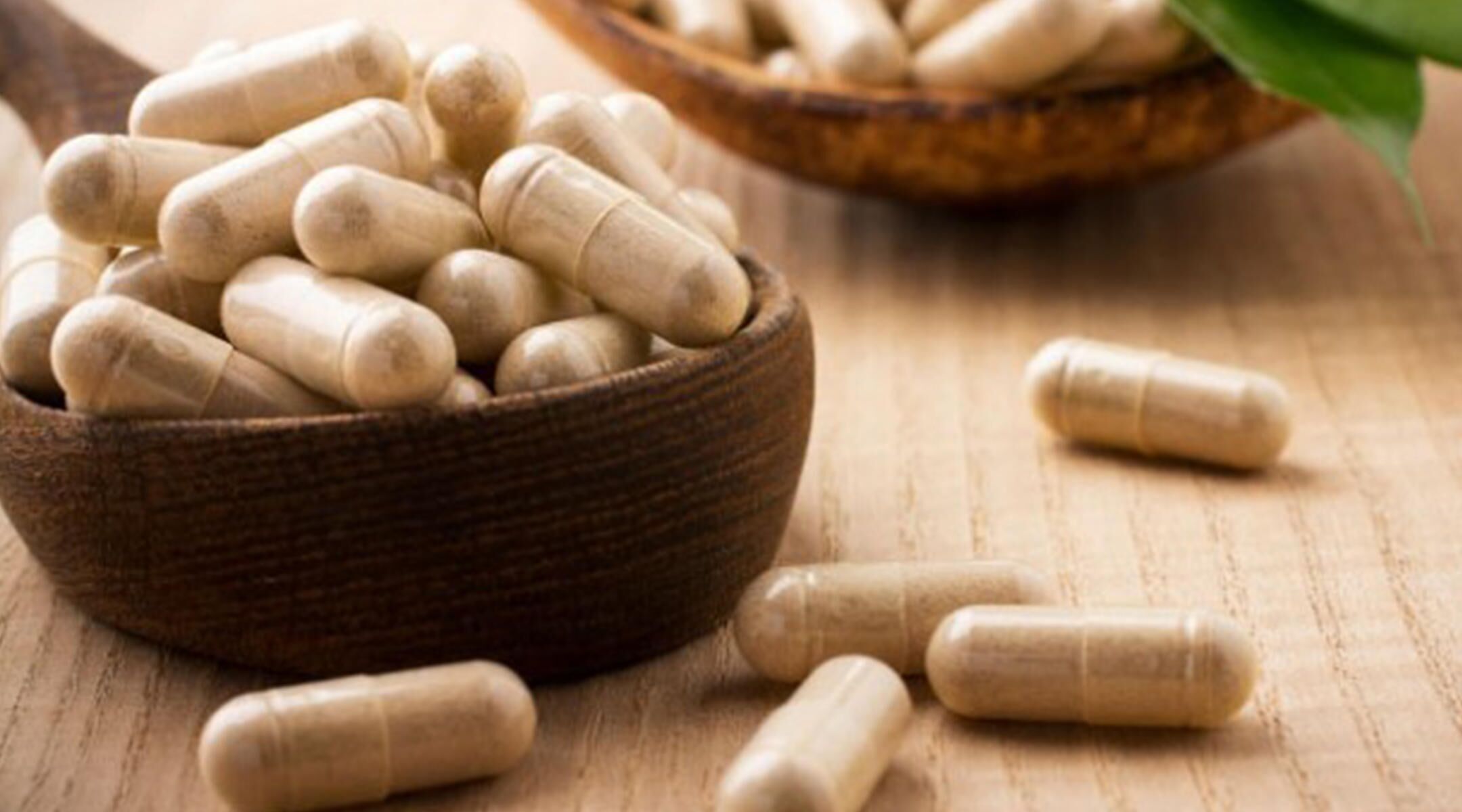When I saw this word, my first reaction was, "Huh? What in the world does that mean?". But simply put it just means, eating your placenta. I like to keep it simple. But for those of you who like actual definitions (which is cool too :), it is the act of consuming part or all of the afterbirth following parturition in mammals. This practice started to become really popular when celebrities' like Kourtney Kardashian and January Jones consumed their placenta, but actually human mommies are the last mammals to start eating their placentas. A lot of documentation has been provided that shows the practice of placentophagy in a range of animals. There are only a few who don't. Those few include humans, camels and some aquatic species. Okay, and full disclosure I am a supporter of this practice. I have done it myself and it has really helped with my mood and breast milk production. I have also used my placenta to help with cuts and scrapes, diaper rashes and when my kids catch a cold. Just thought you should know : ) Even with you now knowing this, I am not here to convince you that placentophagy is for everyone or that it is a "Cure All" for all of your postpartum woes. However I would like to be a source of information. On this blog I will give it my best effort to present actual information, so you can make an informed decision, and hopefully continue your search forward to do your own research on what is best for you and your family.
Okay, so now that the pleasantries are out the way, I will continue. So, many people wonder why so many animals decide to eat their placenta. Is it for nutrition? To clean their nest? Are they trying to eradicate their newborn scent to protect them from predators? Or do they eat it simply because they are hungry? There are a lot of theories out there, but honestly, scientist really don't know the real reason animals do it. The most popular theory is that animals eat their placenta in order to replenish all the healthy stuff they lost during pregnancy (FYI some scientist say they disproved this study while studying rats). My PERSONAL opinion is, that this makes the most sense. Even if you don't loose a lot of nutrients during pregnancy, scientifically speaking your placenta is FULL of nutrients. I can see animal instinct taking over and being like, this new kid is going to drive me crazy, I need ALL the nutrients I can get!
Alright, so what about the placenta in humans? What is it and what does it do? Well your placenta is an organ that forms on the wall of the uterus during pregnancy and it connects to your fetus by an umbilical cord. Yup your placenta is an actual organ that your body gets rid of! When you think about it like that, isn't it just like eating liver? I mean, people do enjoy eating liver for dinner. I'm just saying (shrugging my shoulders). The placenta delivers oxygen and nutrients from the mothers blood too the developing baby, as well as removes waste. In order for your baby to properly grow your baby needs nutrients, water, oxygen and antibodies against disease and your placenta happens to provide all of these things, cool huh? As your blood flows through your uterus, the placenta seeps up nutrients, immune molecules and oxygen molecules that you have circulating through your system.The placenta also helps your baby by acting as a barrier, it helps get good stuff in and keep most of the bad bacteria and viruses out of the womb. Your placenta also produces hormones and signaling molecules like human chorionic gonadoropin, or hCG, human placental lactogen (HPL), estrogen and progesterone, to signal babies needs to mommy. New research shows that some of these molecules encourage new blood vessels to form both between your body and the placenta, and between the placenta and your baby, to carry oxygen to the fetus. Some help your body to prepare to make milk (but also prevent you from lactating before you give birth). While some boost your metabolism to help supply energy to both you and your growing baby.
Whew! I know I said a lot, but as I have said before your placenta is pretty darn amazing and does a lot. Not to mention tissues from the placenta are an abundant source of mesenchymal stromal cells (MSCs), and these cells are being studied around the world for applications in regenerative medicine, due to their well-documented ability to reduce inflammation and modulate the immune system. The placenta also contains endothelial stem cells that can promote blood vessel formation, and epithelial stem cells that are precursors to the growth of skin. In fact, Membranes of the placenta were documented as effective wound dressings in the early 1900’s and placental tissue has been used for eye surgery since 1940. Within the past decade, clinical trials have studied the role of placental stem cells in wound healing, auto-immune disorders, arthritis, and sports medicine.
 Okay, I have provided lots of information on some things that the placenta can do. Notice I said "some", this is not at all an exhaustive list. I don't know about you, but I am beginning to see why mammals decide to help themselves to a nice little one course meal after giving birth. Yum! But, all jokes aside, even given all of this information, most scientist and clinicians will still say their is no scientific evidence to back placentophagy. However, there was a study in 2017 done by UNLV researchers that examined the efficiency of placenta capsules in promoting various health benefits, including stemming the onset of postpartum "baby blues" and depression in new mothers. What they found is that these claims were not clearly supported, but more research is still needed.
Okay, I have provided lots of information on some things that the placenta can do. Notice I said "some", this is not at all an exhaustive list. I don't know about you, but I am beginning to see why mammals decide to help themselves to a nice little one course meal after giving birth. Yum! But, all jokes aside, even given all of this information, most scientist and clinicians will still say their is no scientific evidence to back placentophagy. However, there was a study in 2017 done by UNLV researchers that examined the efficiency of placenta capsules in promoting various health benefits, including stemming the onset of postpartum "baby blues" and depression in new mothers. What they found is that these claims were not clearly supported, but more research is still needed.
They did not find any clear robust differences in maternal hormone levels or postpartum mood between the placenta group and the placebo group, which is the scientific standard. The research group did however show that ingesting placenta capsules did produce a small but detectable change in hormone concentrations that show up in a mothers circulating hormone levels. This does suggest that the practice of taking pills is capable of providing some kind of therapeutic effect (I will make sure to reference the paper below). Other then the studies done at UNLV the most recent study I could find on this topic is from 1918.
So where are we now? Well hopefully you have a better understanding on Placentophagy. Most medical professionals still frown on this practice. There has only been one known case of potential harmful effects of taking placental pills, but the specifics of that case is still a little unclear (I will have a separate post that talks about this case). This case involves a newborn contracting GBS after leaving the hospital. The infants mom was taking placenta pills. Other then this one isolated event, there has been no other reported negative effects of placenta encapsulation.
I will say, I find it interesting that given all of the recent hype around this practice over the past 10 years, that more studies haven't been done on the subject. Is it because scientist feel no need? Have they already made up their mind? Maybe the practice of consuming the placenta is thought to be just too risky? Or maybe, Scientist just want to keep all of the discarded placentas for themselves so they can continue to do research and gather stem cells without worrying about a shortage of placentas? lol Okay, maybe the last question sounds too "conspiracy theroy-ish", but hey you never know. For me personally, I can only look at things logically. The benefits and nutrients that the placenta provides the growing baby is scientifically proven, as well as the benefit of placenta and cord stem cell research. My logic is, those benefits just don't disappear once the placenta leaves your body, and if prepared properly and ingested you are bound to receive some of those benefits. But of course that is just me and my PERSONAL opinion : ) Feel free to make your own ; )
For your reading pleasure. Research on Placentophagy
- Gryder, L. K., Young, S. M., Zava, D., et al. (2017). Effects of human maternal placentophagy on maternal postpartum iron status: A randomized, double-blind, placebo controlled pilot study. Journal of Midwifery and Women’s Health 62:68-79.
- Hammett, F. S. (1918). The effect of the maternal ingestion of desiccated placenta upon the rate of growth of the breast-fed infant. Journal of Biological Chemistry, 36, 569–573.
- Marraccini, M.E., Gorman, K. S. (2015). Exploring placentophagy in humans: Problems and recommendations. Journal of Midwifery and Women’s Health 60(4): 371-9.
- Young, S. M., Gryder, L. K., David, W. B., et al. (2016). Human placenta processed for encapsulation contains modest concentrations of 14 trace minerals and elements. Nutrition Research 36(8): 872-8.
- Young, S. M., Gryder, L. K., Zava, D., et al. (2016). Presence and concentration of 17 hormones in human placenta processed for encapsulation and consumption. Placenta 43: 86-9.




0 Comments